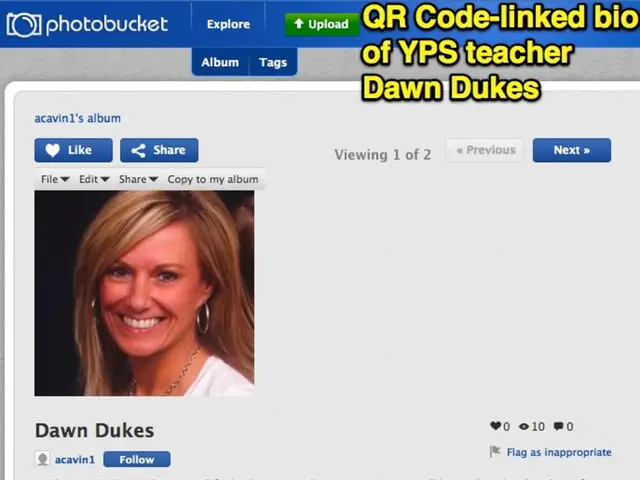Thuringia's Prime Minister advocates for prohibiting the use of smartphones by children under age 14 and restricting social media access for those aged 16.
In Thuringia, a German state, there's a growing emphasis on enlightening children about the risks associated with sexualized violence on the internet through the project "Safe talk, real talk." This initiative is part of the Thuringia state government's broader approach to address digital media issues, which also includes the Children's Media Course.
Mario Voigt, the Minister President of Thuringia, is advocating for limiting smartphone and social media use by children and young people. Voigt, in an article published in the "Frankfurter Allgemeine Zeitung," argues that children do not need the internet in their pockets, but rather need real adventures. He suggests making schools "smartphone-free" zones and proposes that digital competence should be a separate subject in the curriculum, but not used as a distraction from learning in schools.
Voigt believes that society is not destroyed by technology, but by indifference to its side effects. He suggests clear guidelines from politics, such as no TikTok before 16, no phones in primary schools, and digital lessons only with purpose and goal. He also calls for teaching children how to protect themselves and their attention as an investment in their freedom.
The Children's Media Course, already in action in Thuringia, creates spaces in schools and extracurricular learning places where children can learn about digital media opportunities and risks in an age-appropriate manner. The course aims to teach children where digital curiosity meets limits and how they can protect themselves.
The "Safe talk, real talk" project involves experts and young people openly discussing topics like cybergrooming, boundary violations, and dealing with digital excesses. This project addresses topics that are often taboo, setting a strong impetus for enlightenment about sexualized violence on the internet.
Voigt suggests that a simple feature phone is sufficient for maintaining accessibility without exposing children to the dopamine pull of apps. He believes that real friendships are formed through play, conversation, and shared time, not through likes, filters, or FOMO (fear of missing out).
While there are no specific state-level policies in Thuringia that differ significantly from the national approaches in Germany, the state government is supporting parents in managing digital media use by children. However, local schools and educational institutions may have their own guidelines on smartphone and social media use, which could vary based on regional policies and educational philosophies.
In Germany, most children start using smartphones around the age of 7, and many own one by age 9. There is ongoing debate about whether children should be allowed smartphones at such a young age. Parents gradually introduce children to social media, with 77% of parents not allowing their children to have their own social media account when they are aged 6 to 9. By age 10 to 12, 37% are allowed to set up their own profiles, and from age 13, most parents allow their children full access to social media.
Privacy concerns have also been raised, with German courts highlighting issues with social media giants processing children's personal data. This underscores the need for stronger data protection measures for minors.
In conclusion, Thuringia is taking significant steps to address digital media issues and promote digital literacy among children. The state government is advocating for limiting smartphone and social media use, supporting parents, and providing educational initiatives like the Children's Media Course and the "Safe talk, real talk" project. These initiatives aim to equip children with the knowledge and skills to navigate the digital world safely and responsibly.
Technology plays a crucial role in Mario Voigt's vision for education and self-development, as he advocates for digital competence to be a separate subject in the curriculum and promotes restrictions on smartphone and social media use in schools.
In the realm of politics, Voigt proposes clear guidelines regarding the age-appropriate use of digital platforms, such as no TikTok before 16 and no phones in primary schools. His ultimate goal is to instill in children the ability to protect themselves and their attention, viewing this as an investment in their freedom.




